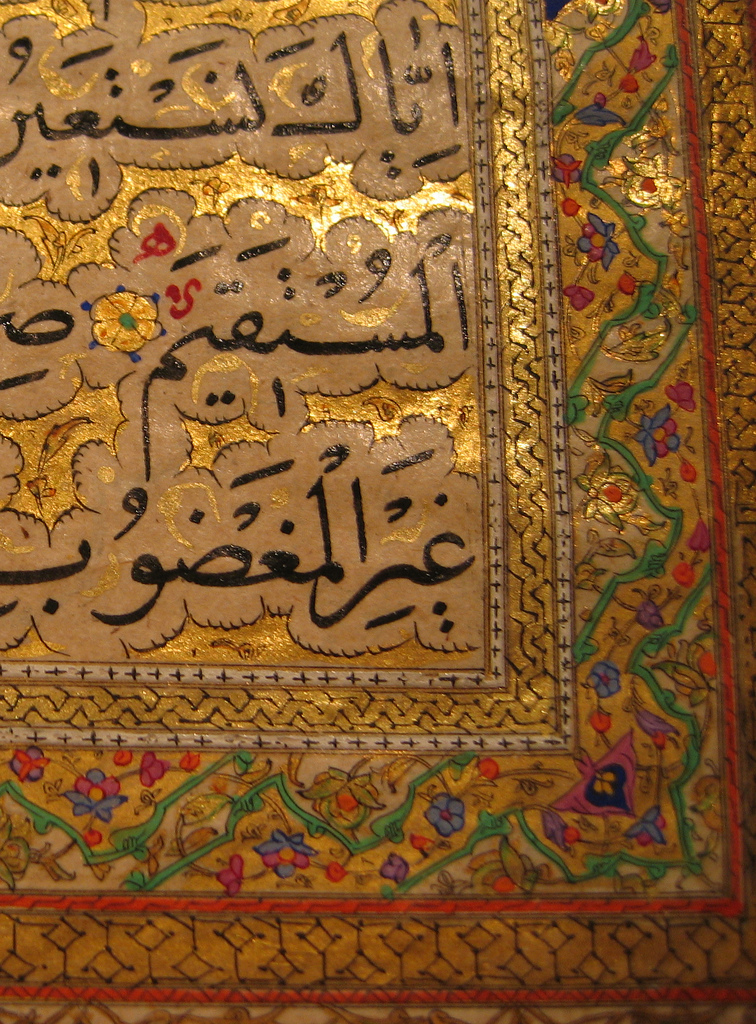 Lecture by Suhaib Webb | Transcribed by Fuseina Mohamad
Lecture by Suhaib Webb | Transcribed by Fuseina Mohamad
Surat Luqman, Qur’an 31: Part I | Part II | Part III | Part IV
Then Allah subhanahu wa ta’ala (glorified is He) says, “If we had sent this Qur’an upon a mountain, you would see this mountain crumble and become weak from the fear of Allah,” (Qur’an 59:21). Imam Al Qurtubi said something remarkable about this mountain. He said, “If this is the state of a mountain, what about the heart of this believer whose heart Allah made such that it can hold the Qur’an?” Then Allah (swt) concludes the ayah (verse) by saying, “And these examples We present to the people that perhaps they will give thought.”
Here Allah (swt) says, “If We had sent this Qur’an…” As many of us know, when the word “we” is used in the Qur’an to refer to Allah (swt), it’s not implying that there are multiple gods. This is called نون التعظيم (noon at-ta’theem, the noon of greatness). It’s like the royal “we” in English. It’s used by someone who has a high position, like President Obama. If he were to send a letter to someone he would write “We” not “I”. It’s the same in the Arabic language, as we see in this ayah.
Next, we see the use of the word “هذا (haatha, this)”. Haatha is called an اسم اشارة (ism ishaarah, demonstrative noun). It’s used to show closeness. So it indicates something close, not something far. But, think about the beginning of Surat al-Baqarah, where Allah (swt) says, “ذلك الكتاب (thaalika al-kitaab, that is the book).” “ذلك (thaalika, that)” is the opposite of “هذا (haatha, this)”. And the letter ل in ذلك is called the لام البعد (lam al-bu’d, laam of distance). It is talking about something far away. Why do you think that here, brothers and sisters, in Surat al-Hashr, Allah (swt) says, “هذا القرآن (haathal Qur’an, this Qur’an),” indicating that it is as if the Qur’an is in front of the Companions, but in Surat al-Baqarah Allah (swt) said, “ذلك الكتاب (thaalikal kitaab, that is the book),” as if the Qur’an is far away? Why? Who knows?
<Audience gives an answer.>
Masha’Allah, that’s one of the interpretations. He said that in Surat al-Hashr “هذا (haatha, this)” is referring to the Qur’an that was around in the time of the Companions, it was close to them. And “ذلك الكتاب (thaalikal kitaabu, that is the book)” is talking about the Qur’an in لوح المحفوظ (lawhul mahfudth, the protected slate which is with Allah (swt)). Masha’Allah, nice job.
The scholars gave a few reasons. One of them is that “هذا القرآن (haathal Qur’an, this Qur’an)” is used to show the Companions of the Prophet ﷺ how close the Qur’an is to them. Even though Allah (swt) sent the Qur’an, it’s close to you. You don’t get this in the translation, by the way. You find this in the Arabic language. Surat al-Baqarah is the beginning of the Qur’an. “ذلك الكتاب (thaalikal kitaabu, that is the book)” is used to make you feel that the Qur’an is something great, something far from you. Even though the Qur’an is in your hands you think, “SubhanAllah! I’m reading a book that’s amazing.” And Allah (swt) says, “If We had sent this Qur’an.” When Allah (swt) sent the Qur’an you weren’t holding it, but Allah (swt) wants to show you how close the Qur’an is to you.
After Allah (swt) talks about the mountain and the hearts, He says, “These parables We display for people so that they’ll think.” And here”يتفكر (yatafakkar, think)” means that the person tasks himself to think. Just like in the beginning we spoke of the hadith (narration) “خيركم من تعلم القرآن و علمه (The best of you is whoever learns the Qur’an and teaches it)”. “تعلم (ta’allama, learns)” means he/she tasks himself/herself to learn the Qur’an.
With that in mind we’ll start, insha’Allah (God willing), with Surat al-Luqman and the advice of Luqman to his son. Most people really like this part of the Qur’an so we’ll spend a few weeks explaining this advice. We ask Allah (swt) to let us benefit from the Qur’an. We ask Allah (swt) to help us. It’s not about quantity. Even if someone is able to sit, with his wife/family once a week, maybe on Saturday when there’s no work, reading the Qur’an and giving up some sleep for the Qur’an then masha’Allah, Allah (swt) will put good in it.

Salaams to all my fellow Muslims. Nice article, is there anywhere I can get the audio of this lecture?
[…] Luqman, Qur’an 31: Part I | Part II | Part III | Part […]